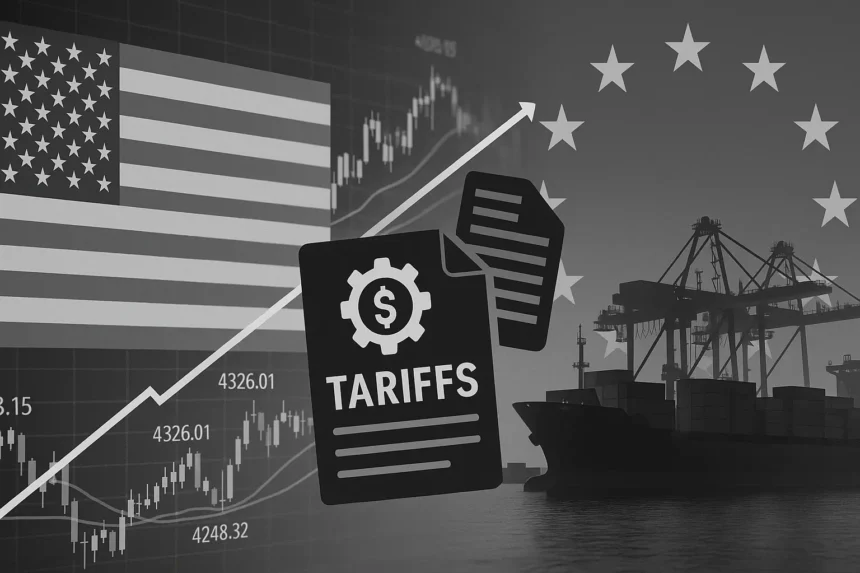The U.S. stock market rallies after President Donald Trump delays a 50% tariff on imports from the European Union (EU). The move eases trade war tensions that have unsettled investors for months. The Dow Jones Industrial Average climbs 530 points, a 1.28% gain. The S&P 500 rises 1.6%, and the Nasdaq Composite, led by technology stocks, gains nearly 2%.
What’s Happening & Why This Matters
Investors respond positively to the tariff delay, which pushes back the planned import tax from early June to July 9. U.S. markets reopen after Memorial Day, providing the first chance for Wall Street to react since the announcement. Trump’s repeated tariff threats and last-minute reversals have created volatile swings in market sentiment throughout his administration.
Earlier in April, the markets nearly slid into bear territory as tariff tensions peaked. However, pauses like this one, along with announcements of trade talks, including deal outlines with the United Kingdom and China, have temporarily steadied markets. Despite this, ongoing trade uncertainty keeps investors on edge.
Consumer confidence data from the Conference Board also bolsters the market. May figures show a rebound after five months of declines, signaling that U.S. consumers remain somewhat optimistic despite economic headwinds.
Bond markets take a breather as yields on long-term government debt fall. The 30-year Treasury yield dips below 5%, and the 10-year yield slides under 4.5%. These drops relieve some pressure after concerns about escalating U.S. debt and proposed spending bills. Japan’s bond market also rallies after signals that it may increase foreign investments, following Germany’s surpassing of Japan as the world’s largest issuer of debt.
The U.S. dollar sees a mild rally amid these shifts, recovering from recent pressure caused by trade and debt concerns.
Market experts remain cautious, questioning the durability of the rally given Trump’s capacity to change course rapidly. The trade war and America’s growing debt burden still pose risks.
Nathan Sheets, global chief economist at Citigroup, describes the current environment as a “calm before the storm,” warning that economic growth could slow in the second half of the year. He urges investors to prepare for potential downside risks.
Investment strategist Ed Yardeni advises clients to brace for ongoing market turbulence, comparing stock investing to “riding a mechanical bull.” Yardeni remains optimistic about U.S. equities but insists that Trump needs to declare a trade victory before the summer ends to avoid recession risks.
TF Summary: What’s Next
Markets respond positively to the EU tariff delay, but caution remains over ongoing trade uncertainties and U.S. fiscal challenges. Economic indicators, such as consumer confidence, are sending mixed signals as investors await clear progress on trade negotiations and debt management.
The coming months will test whether the market can sustain gains amid political volatility. Traders and investors are advised to remain vigilant and manage risk prudently.
— Text-to-Speech (TTS) provided by gspeech


